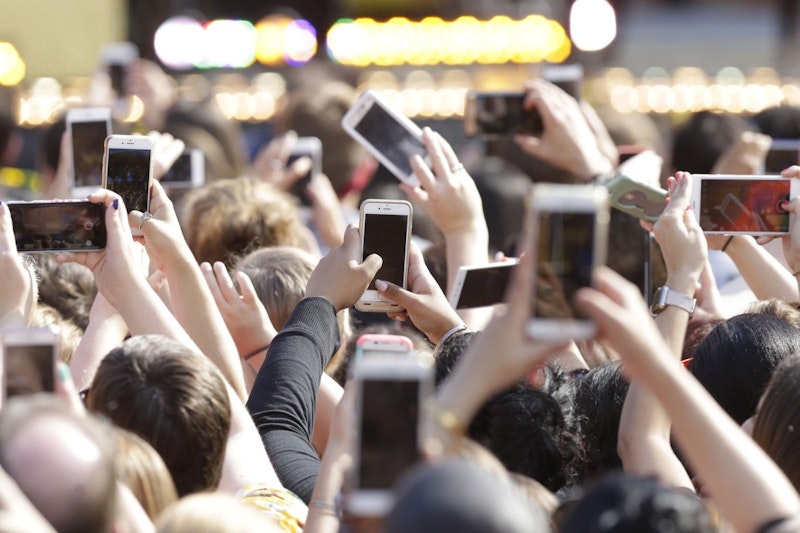One of my favorite writers, Michael Maiello, published a typically smart essay last week about a common topic in the modern era, at least for writers over 40, decrying the growing number of Americans who’ve forsaken reading, whether fiction or hardly demanding self-help and business books. “I don’t have the time,” is the excuse, to which Maiello says, “They wear their inability to read entire books [as opposed to “summaries,” presumably supplied by young assistants who also don’t read] as a badge of honor, as if it is evidence that they are always needed by others. Why, you’d imagine jobs would be lost, nations would falter and orphans would starve if these very serious people took a little time for Dostoevsky.”
He’s right: it’s common to see on social media someone letting the public know, “I was away for two days and now have 2500 emails in my inbox.” So busy, why can’t there be 28 hours in a day so I can clear out the spam, geisha-to-go teases, bogus investment ideas and publicity pitches?
Maiello then recalls a “speed reading” blitz in the 1970s and 80s where someone could “scan text quickly to get surface impressions… Woody Allen summarized it best: ‘I took a speed-reading course and read War and Peace in twenty minutes. It involves Russia.’” I’m older than Maiello, and don’t recall that particular scam of the 1970s (the decade of, “You want a trend, I’ve got a trend!”), but as kid it was commonly reported, with admiration, that John F. Kennedy was a “speed-reader,” and even as a youngster I found that kind of fishy. Say what you will about aristocrat JFK, but there’s no denying his intelligence, humor the ability to ad-lib at press conferences and timely self-deprecation. On the other hand, he wasn’t a highbrow intellectual, fond of Ian Fleming novels, forgettable movies and bad popular music. Maybe all that speed-reading is why he fobbed off the writing of his 1956 Profiles in Courage Pulitzer Prize winner to his presidential speechwriter Ted Sorenson, who likely was familiar with Dostoevsky.
Today, when people are at airports, taking public transportation, frequenting restaurants and sporting events, it’s noted almost every day that they’re staring down at their phones. I do it, too—although not at a restaurant, which is rude, even if acceptable in current etiquette, or a baseball game—whether in an Uber or taxi, waiting for a doctor’s appointment or on line at CVS. I scroll for news stories from the day’s newspapers, and am not put off by a “longform” article of 2000 words. What others do when they’re “glued to their phones” I’ve no idea and no interest. I will say this: in a physician’s waiting room, the iPhone is a big uptick from thumbing through the once-traditional mound of bacteria-infested months-old weekly magazines. Score one for progress in that instance, even if popular culture is losing 11-2 in the eighth inning. (Maybe it’s ninth, but since I’m not a rabid conspiracist, I “won’t go there.” My stomach just flipped like a gymnast writing those words, but “here we are” and “what a time to be alive” and all that pre-school jazz.
Coincidentally, just hours after reading Maiello, the news “broke” that John Barth, one of America’s brainiest, and challenging, novelists, passed away at the enviable age of 93, after leading a packed life, filled with writing, teaching, lectures and family. I wondered what Barth would make of today’s decline in literacy, even among the self-appointed intelligentsia (in academia, government, finance and media), and I’d guess he’d offer a convoluted, but very funny, pinprick.
As a teen I’d read Barth’s The Floating Opera, The End of the Road, The Sot-Weed Factor, Lost in the Funhouse, Giles Goat-Boy, and was delighted that he was slated to teach at Johns Hopkins (his alma mater) starting in the fall of 1973, my freshman year there. I was a crummy student, and skipped a lot of classes to work at the college paper and several part-time jobs, but the seminars of Barth—along with Hugh Kenner and Ron Walters—I never missed. As I’ve noted before, the highlight of Barth’s two-hour class was when he’d spend most of the time speaking about whatever was on his mind—one digression was a hilarious recount of a recent fishing trip with Borges—instead of students reading their very bad (mine included) short stories.
Barth is the only person I’ve encountered who spoke, 45 minutes at a clip, in perfect prose. Someone taking dictation could transcribe one of the man’s extended soliloquies, and there wouldn’t be a typo or grammatical error to be found. That’s the oratorical/literary equivalent of perfect pitch, but more rare. Barth, not given to flash (always conservatively dressed, a sweater or jacket over a tie), enjoyed oddballs, of which I was one. He invited me to lunch at the JHU Faculty Club—where I was a lowly parking attendant from five-eight p.m.—at the end of the semester in the fall of 1975, and gently, but emphatically, recommended I not pursue fiction, simply because I wasn’t very good. But he was kind enough to encourage my journalism career (he cited a few of my articles in The News-Letter), and if that was generous schmooze, he did keep up an irregular correspondence with me when I was running City Paper, and once offered to contribute a short piece for the weekly. That didn’t materialize—profuse apologies offered because of previous commitments, etc.—but I’ll remember him as not only a literary giant, but a gentleman, the ranks of which are disgracefully thin today.
—Follow Russ Smith on Twitter: @MUGGER2023

